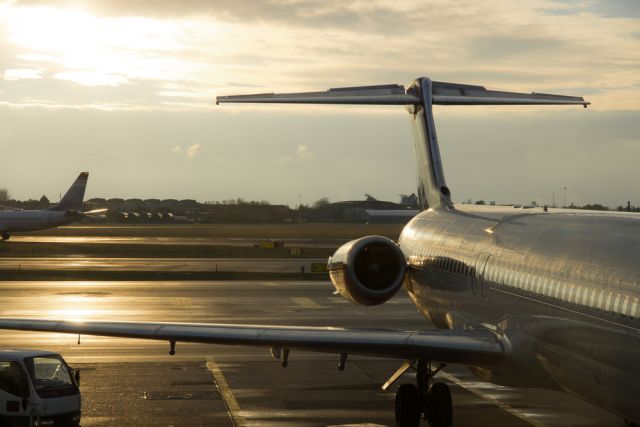
SAF can reduce CO2 emissions from air transportation and can be used as a drop-in fuel without modifying existing storage and refueling infrastructure, aircraft or engines. (Source: Shutterstock)
At COP28 in the UAE, Paris' TotalEnergies and Abu Dhabi energy company Masdar conducted the first test flight to demonstrate potential for converting methanol to sustainable aviation fuel (SAF), according to a Dec. 6 press release.
SAF can reduce CO2 emissions from air transportation and can be used as a drop-in fuel— a synthetic substitute for conventional petroleum— without modifying existing storage and refueling infrastructure, aircraft or engines.
The Alcohol-to-Jet Synthetic Paraffinic Kerosene pathway (ATJ-SPK) was certified in 2016 as meeting international standards for jet fuel, but methanol is not in the list of specified alcohols, the release stated. The test flight, which used a blend of aviation fuel made from olefins, will support the certification of SAF production from methanol.
The new pathway could lead to eSAF, a synthetic fuel with potential to be derived from renewable energy, and used to “meet the challenge of producing SAF worldwide to decarbonize aviation”, TotalEnergies added in the release.
“As industry and energy companies, our collective job is to work on the next generation of clean aviation fuels that could complement SAF currently produced from used cooking oil,” said Patrick Pouyanné, chairman and CEO of TotalEnergies. “This novel pathway to jet, through e-SAF, is critical to support the decarbonization of the aviation industry,”
The UAE General Civil Aviation Authority, Airbus, Falcon Aviation Services and technology licensor Axens also contributed to the flight.
Recommended Reading
Report: Diamondback in Talks to Buy Double Eagle IV for ~$5B
2025-02-14 - Diamondback Energy is reportedly in talks to potentially buy fellow Permian producer Double Eagle IV. A deal could be valued at over $5 billion.
Ring Energy Closes Central Basin Platform M&A from Lime Rock
2025-04-01 - Ring Energy added 17,700 net acres and 2,300 boe/d of production in the Central Basin Platform through an acquisition from Lime Rock Resources IV.
After Big, Oily M&A Year, Upstream E&Ps, Majors May Chase Gas Deals
2025-01-29 - Upstream M&A hit a high of $105 billion in 2024 even as deal values declined in the fourth quarter with just $9.6 billion in announced transactions.
Appalachia, Haynesville Minerals M&A Heats Up as NatGas Prices Rise
2025-04-03 - Several large Appalachia and Haynesville minerals and royalties packages are expected to hit the market as buyer interest grows for U.S. natural gas.
Diamondback Acquires Permian’s Double Eagle IV for $4.1B
2025-02-18 - Diamondback Energy has agreed to acquire EnCap Investments-backed Double Eagle IV for approximately 6.9 million shares of Diamondback and $3 billion in cash.
Comments
Add new comment
This conversation is moderated according to Hart Energy community rules. Please read the rules before joining the discussion. If you’re experiencing any technical problems, please contact our customer care team.





